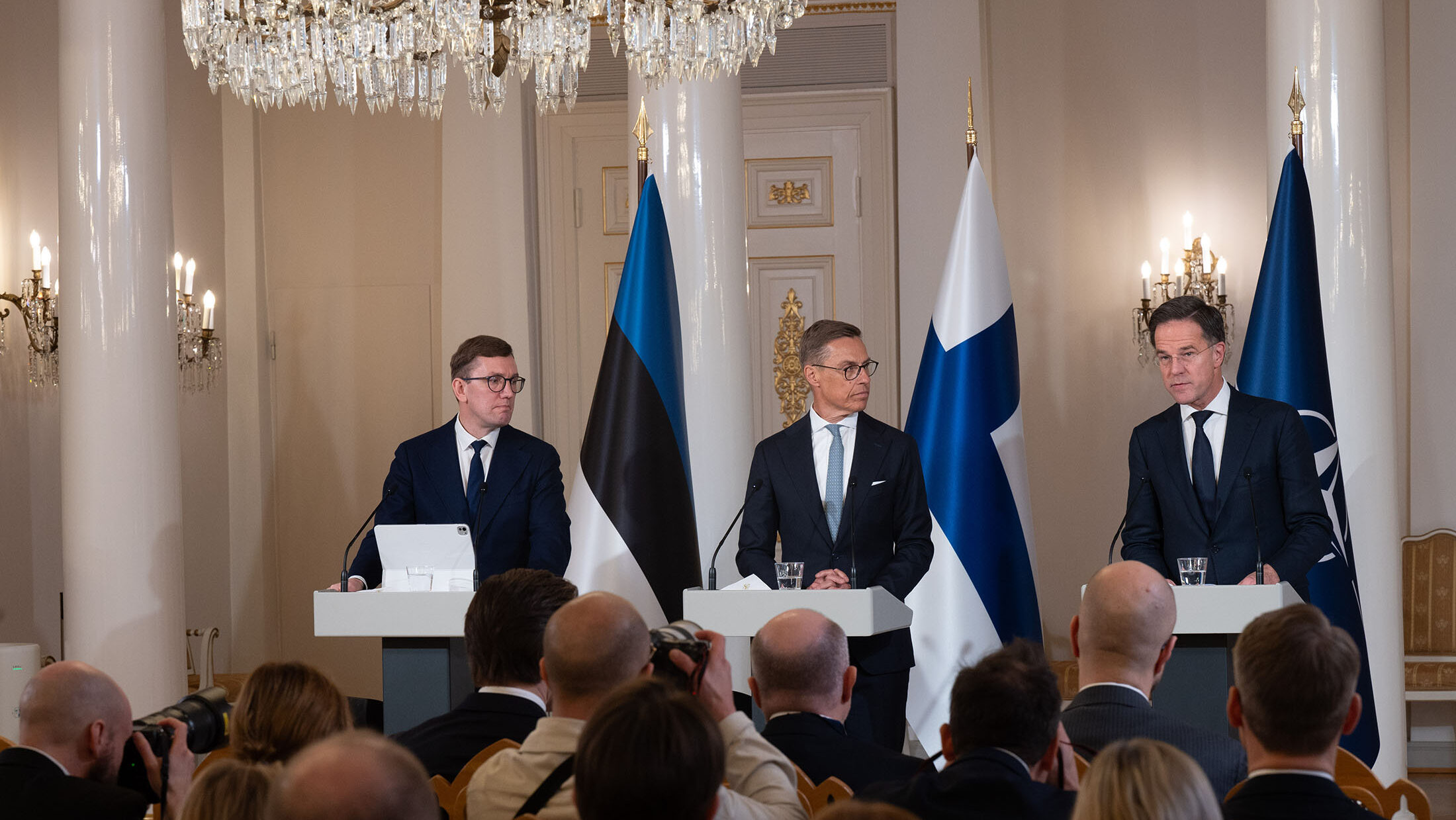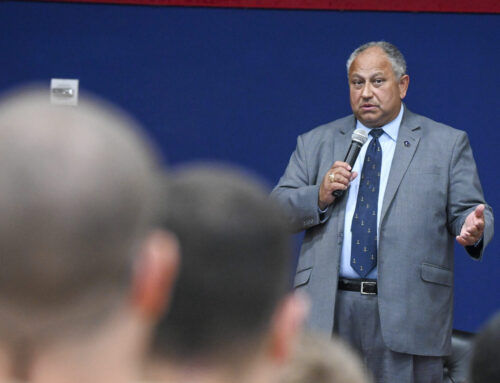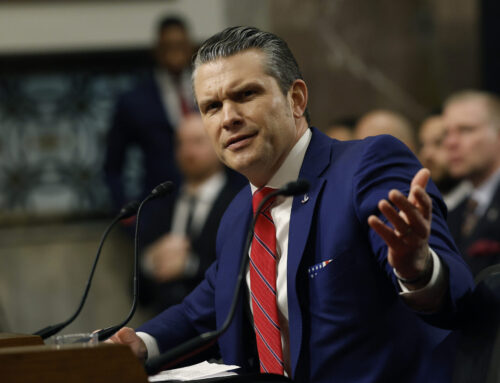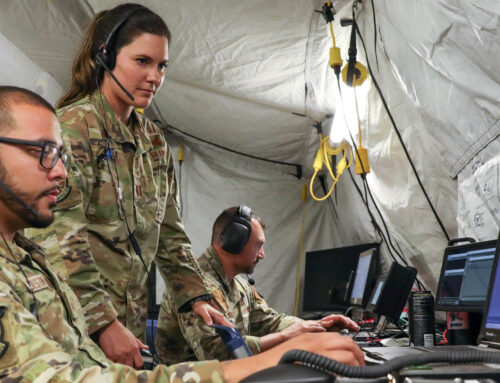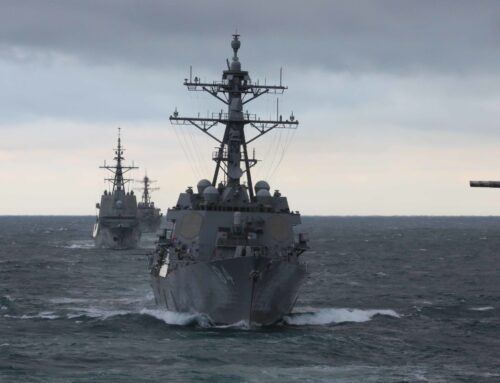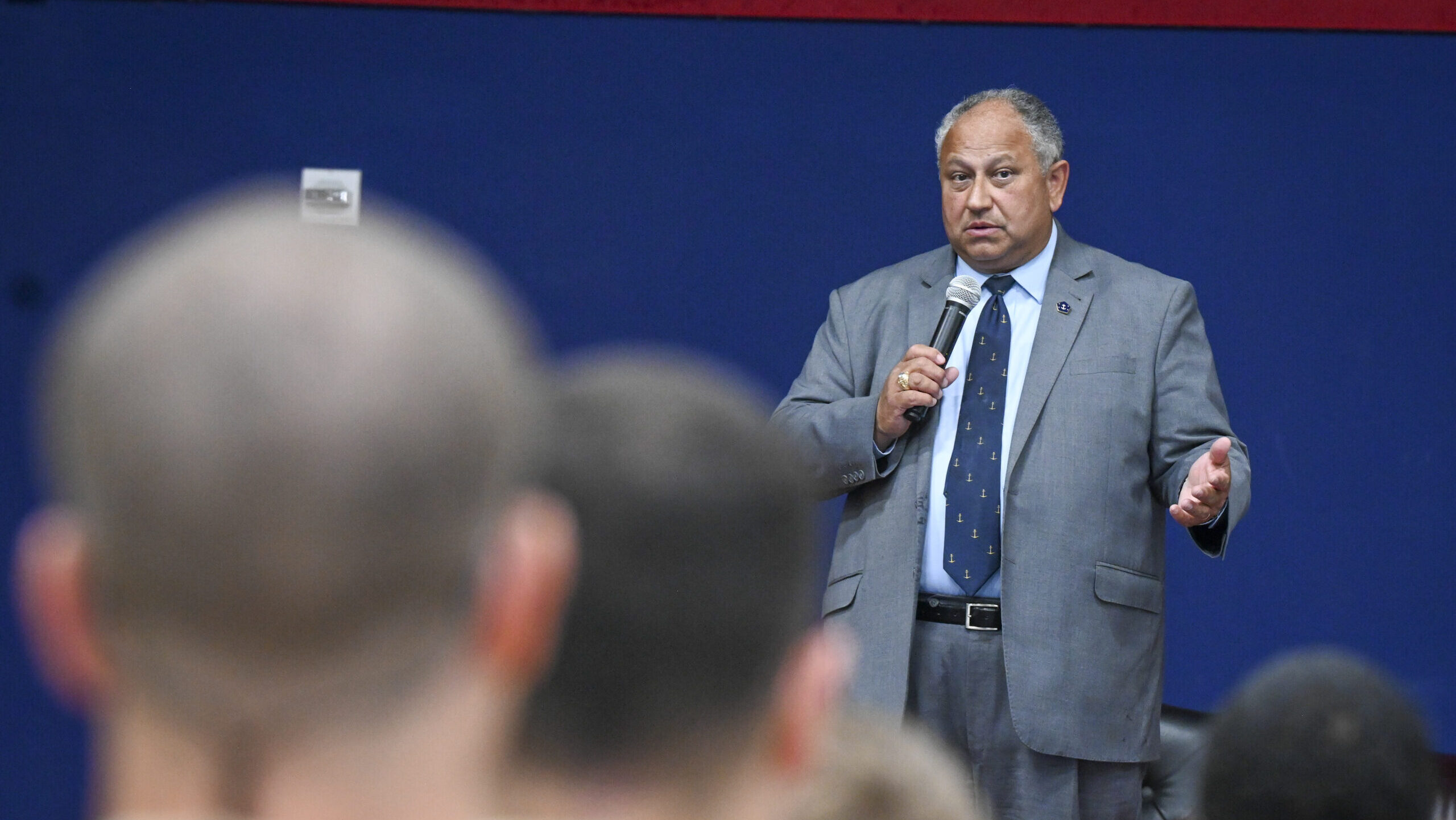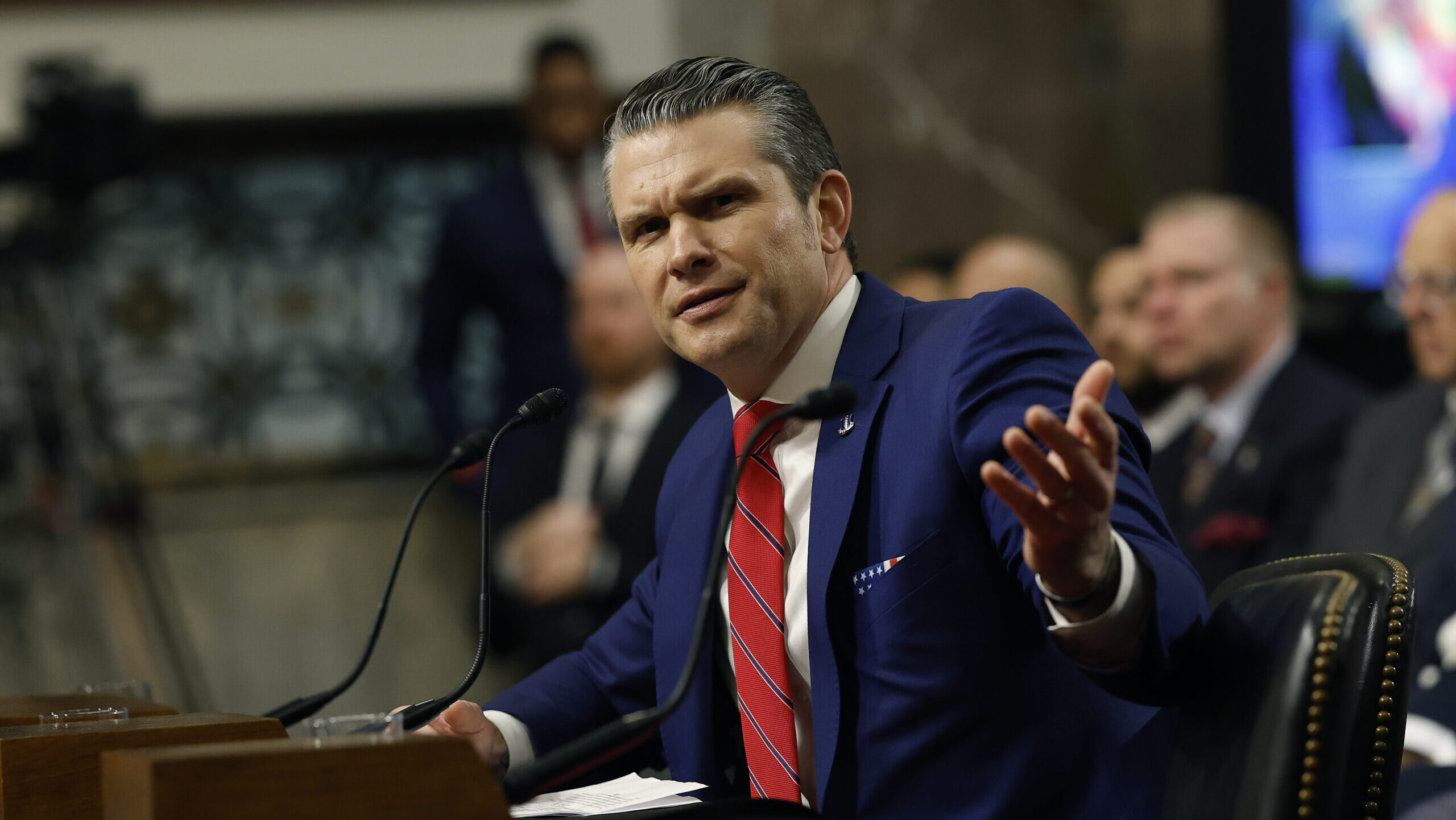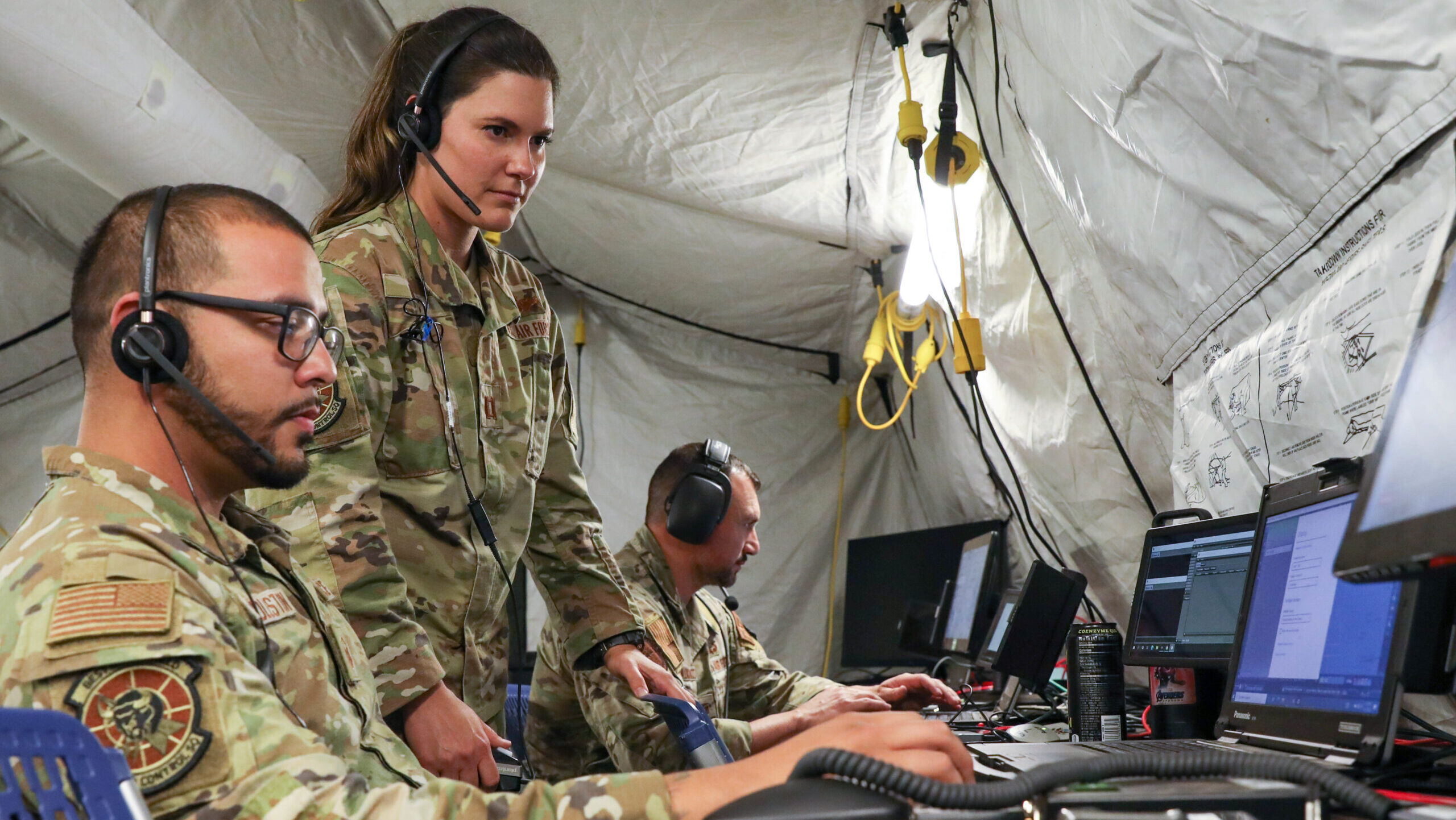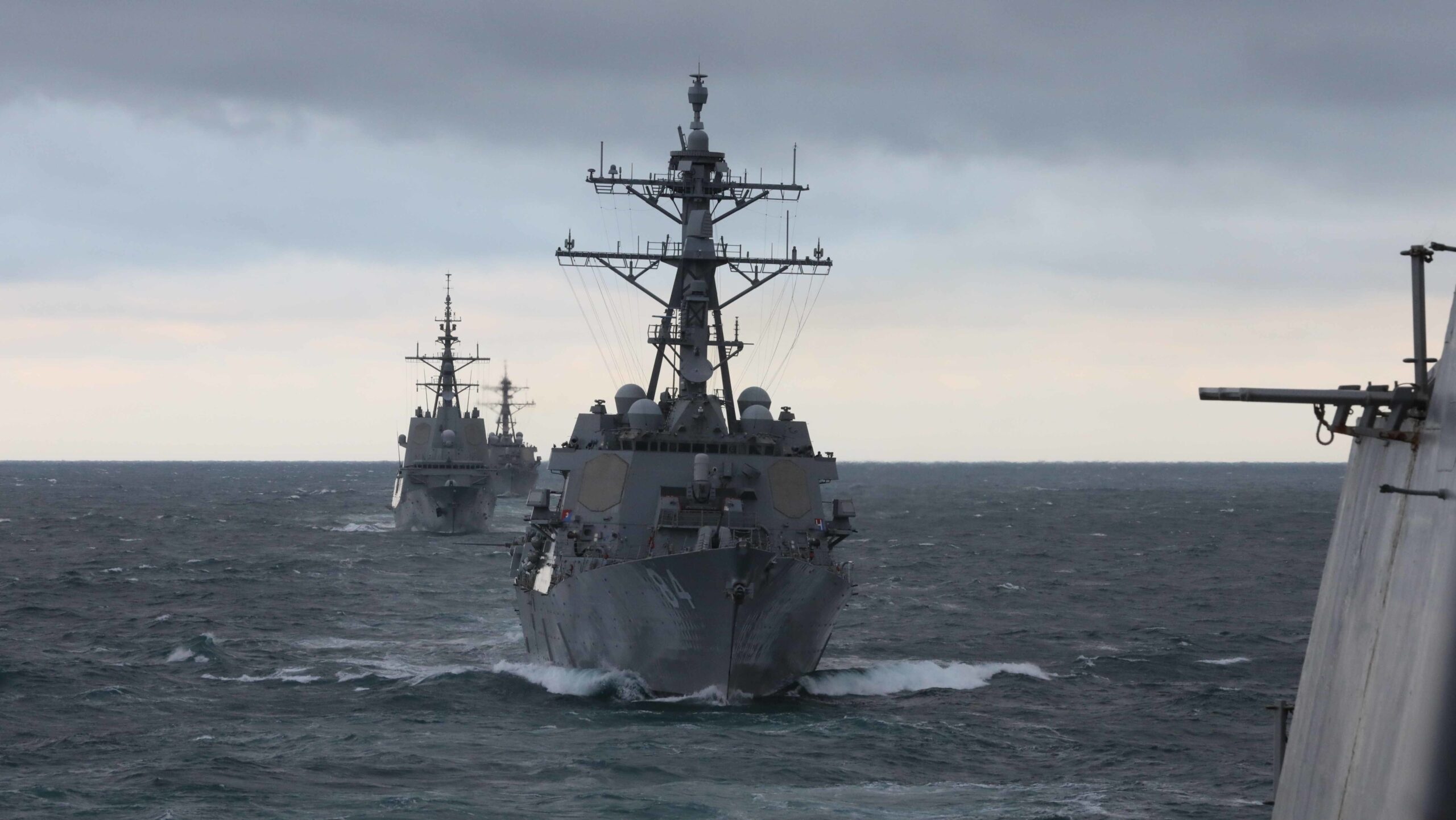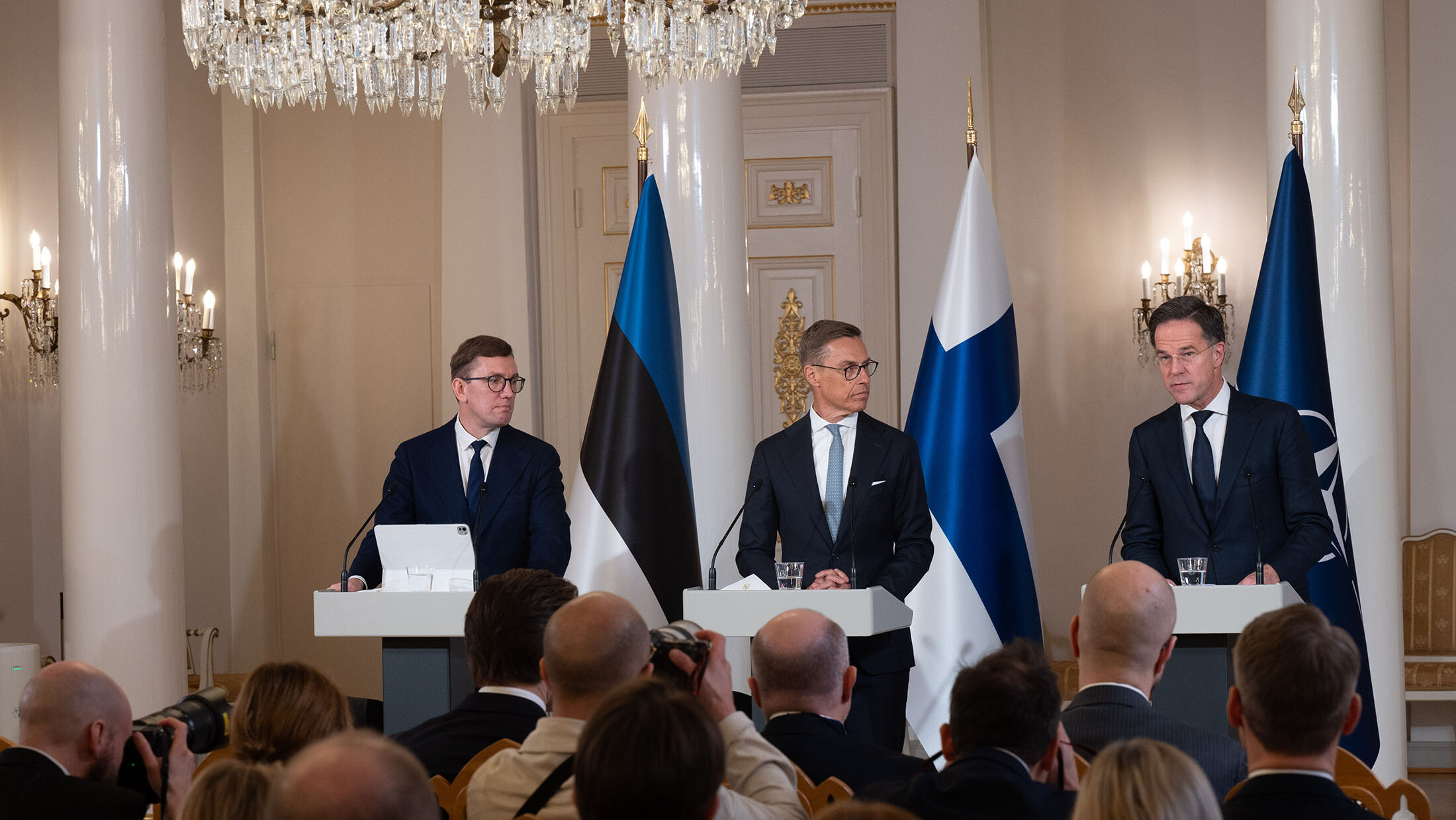
L-R Kristen Michal, Prime Minister of Estonia, Alexander Stubb, President of Finland and Mark Rutte, NATO Secretary General, address media during the alliance’s Baltic Sea Summit (NATO)
BELFAST — NATO Secretary General Mark Rutte has called on alliance members to urgently agree on a new defense spending target above the existing 2 percent GDP floor, stating, “we really have to get this done in the next couple of months.”
“This is urgent, it is urgent now,” he said today during the Baltic Sea Summit in Helsinki, Finland. “This cannot wait until some summit somewhere.”
Allies will meet in The Netherlands for the annual NATO Summit in June, where formal approval of an uplift in spending had been expected.
But Rutte warned that NATO could get “into difficulty” if spending and weapons production are not ramped up as soon as possible, especially because of Russia’s formidable military funding. Moscow is currently producing an equivalent number of weapons in three months as NATO does over a year, according to Rutte.
Similarly, he said that China is “investing heavily” in its defense capabilities and “will have 1,000 nuclear warheads by 2030.”
Rutte did not offer a specific spending figure for NATO members to agree on, but his plea follows US President-elect Donald Trump calling for a target of 5 percent to be met. Trump’s tactic could be a bluff to illicit a compromise from European allies on the road to shaking on a more realistic target.
Reuters reported on Monday that Rutte is of the view that new military capability targets could require members to commit to “as much as” 3.7 percent GDP, but a lower figure might be feasible once innovation and joint procurement are considered.
Just 23 members of the 32 nation alliance met the 2 percent target in 2024, according to estimated NATO figures (PDF). Poland is expected to spend 4.7 percent GDP on defense this year — the most of any alliance member.
The Eastern European country is an outlier, however. In July last year, Estonia’s Undersecretary for Defence Policy Tuuli Duneton said that there was a “general understanding” that allies were not ready to commit to a 2.5 percent GDP spending target.
As a result, discussion on the matter was effectively abandoned at the NATO Summit in Washington in an attempt to avoid splits emerging between allies.
Trump’s return to power is expected to see a change of approach to Ukraine and defense matters more broadly, though a prior declaration of ending the conflict in 24 hours has been scrapped and replaced with a 100 day timeframe, according to various reports.
Beefing Up Baltic Sea Presence
Separately, NATO has launched a new maritime mission dubbed Baltic Sentry to increase its presence across the Baltic Sea in a bid to protect critical infrastructure amid Russian shadow fleet undersea cable sabotage incidents.
Rutte said Baltic Sentry will involve the deployment of frigates, maritime patrol aircraft, naval drones and “new tech.”
The new mission arrives just a week after the multinational Joint Expeditionary Force activated operation Nordic Warden based around a UK-led and artificial intelligence assisted reaction system capable of assessing threats to undersea cables and monitoring movements of the shadow fleet.
The Russian Eagle S oil tanker remains at the center of a Finnish investigation into damage of the Estlink-2 power cable between Finland and Estonia.
Helsinki will share a “step by step” report with allies on how it dealt with the incident, President of Finland Alexander Stubb said at the Baltic Sea Summit.
“They [Russia’s shadow fleet] are running money for Russia to have this kind of hybrid war against Europe” and are also making an environmental “bomb” a possibility “in our seas,” said Prime Minister of Estonia Kristen Michal.
The shadow fleet are a collection of primarily aging vessels typically transporting crude oil but operating under dubious ownership and often without insurance.
Michal noted that since June, Estonia had inspected over 300 tankers, 62 of which did not have insurance.


